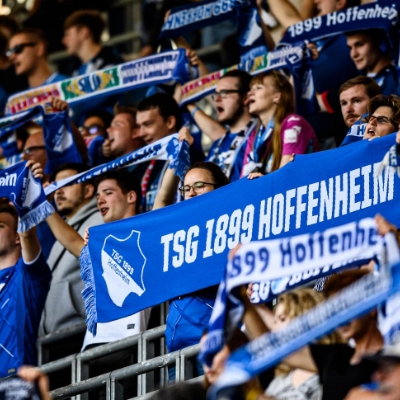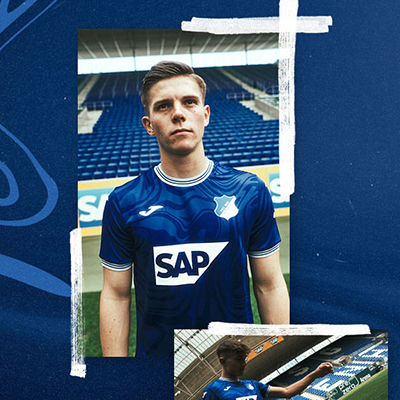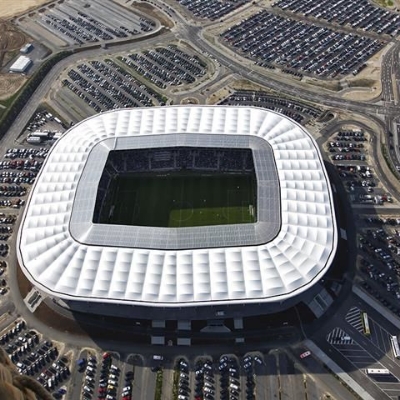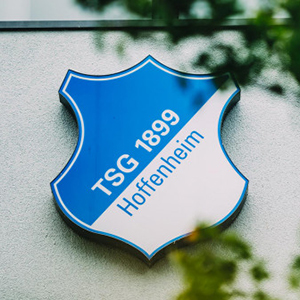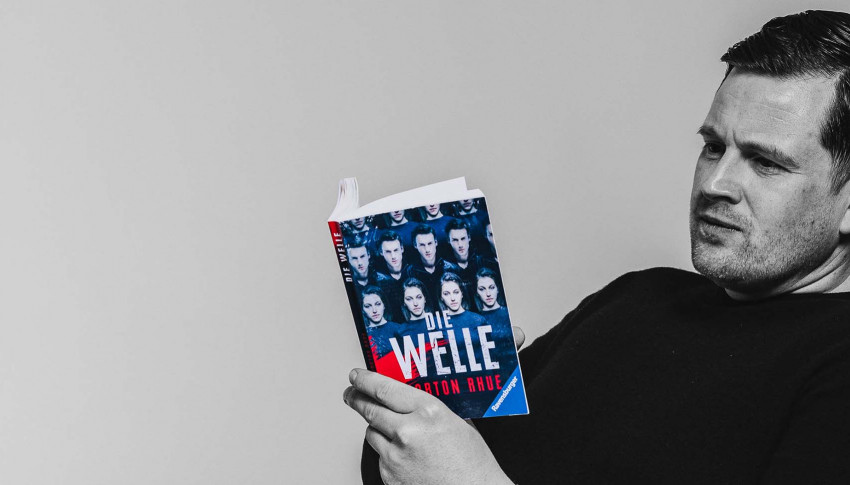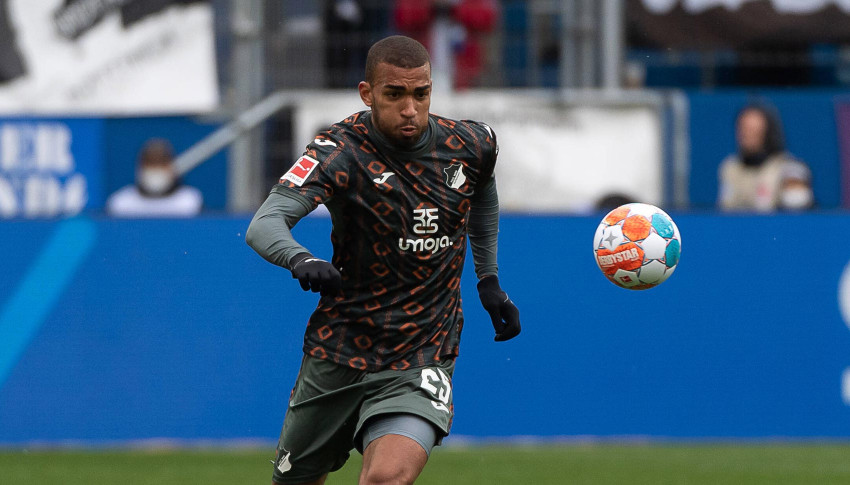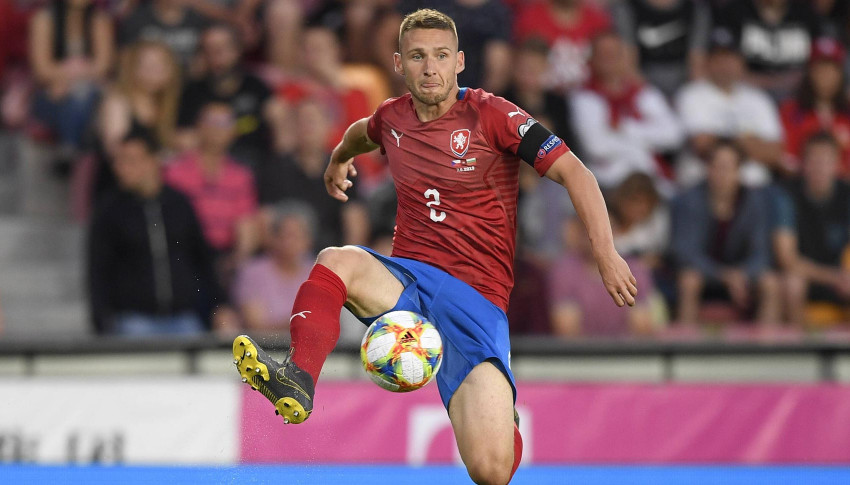"Every setback helps me grow"
Munas, we're meeting in a quiet place. Do you need a lot of relaxation in your life these days?
"My daughter is now one and a half years old and unfortunately doesn't sleep that much yet. That has led to me drinking coffee more and more often. In the past few months, I've really discovered a love for coffee and now I like to make time for it. In addition, the café is close to my daughter's daycare centre. With that in mind, I'll probably be here even more often in the future."
You alluded to the birth of your daughter Nour in May 2020. What has changed for you since she was born?
"Everything."
So it's a new chapter in your life. How would you describe your new life?
"I cannot put my love for my daughter into words. It's just incredible and I'm unbelievably grateful. I try to be the best father I can be for my daughter. I'm a very emotional person when it comes to football and I used to not talk to my wife for a day after a bad game because I was in such a foul mood. But my daughter has changed everything; I have become much more balanced, despite my lack of sleep. When I come home and see her laughing, nothing else matters. She gives me additional strength. Before the Leipzig game, for example, my daughter was sick. I stayed awake almost the entire night so that I could take care of her. At some stage, I looked at the clock and saw that it was already past six. I knew that I would be given a chance in the starting line-up against Leipzig and I wanted to be fit. So I woke up my wife and she took care of our daughter afterwards so that I could at least get a few hours' sleep before the game. But in spite of everything, that night gave me strength because I was there for my daughter. The fact that I then scored a goal in the 2-0 win against Leipzig is proof of that, isn't it?" (laughs)
Nour was born in Heidelberg, has she been to the stadium yet?
"Unfortunately not. We got tickets for my wife and her once, but unfortunately she wasn't well that day. She knows I play football, though. Whenever she sees a game on TV, she shouts 'Dad'. Of course, I hope she'll be able to visit the stadium this season and that I can score a goal for her. One thing is already certain: no matter what happens, I will always have positive associations with the region and the club. Every time I look at her passport, I'll think about it. It's very special for me. We feel extremely comfortable here."
You're witnessing your daughter's childhood up close. You experienced a different childhood; what was life like in Nazareth back then?
"It was different, but also lovely. I wanted to play football all day. At school, on the streets – everywhere. Straight after school, my brother and I would throw our rucksacks in the corner and take the ball. There was a small field near my parents' house. We were always there. We come from simple backgrounds; we couldn't have been happier. We love Nazareth."
In recent months, there have been repeated conflicts surrounding the national team set-up....
"I've never spoken about this publicly before, but it was unbelievable. Following a post I made on Instagram, people from all across the country attacked me. They twisted every one of my words and made them look bad. I did not have any bad intentions towards anyone, but these people were looking for conflict. Unfortunately, most fans believe what is being spread. As a result, I was booed at the Israel national team's home games and insulted on social media. Yet I didn't do anything to anyone."
Was a retirement from international football on the cards?
"I was close to it. But the entire squad, the coaching staff and the president of the football association gave me their complete support. I've made five or six international appearances since the incident. That gives me a good feeling and strengthens my resolve to keep going."
Have you learned over time how to deal with situations like that better?
"Sometimes I can feel myself getting really worked up. But in those moments, you have to stay cool. Because no matter what you do, it will be turned against you. Many people are surprised that I manage to do that when I'm being booed by 30,000 spectators. But I don't think like them and that's why I can block it out. I respect every person. It doesn't matter whether they are Jewish or Muslim; whether they're from Brazil or Germany. I don't care about a person's religion or origin. If a person has a good heart and was brought up well, they'll see it the same way."
The fans should actually be proud of you and your achievements. You are Israel's record goalscorer in the Bundesliga. What does this record mean to you?
"Honestly, I didn't know about it until it was mentioned to me after I scored against Leipzig. Of course, it's a great honour and I'm proud of it. But when I reflect on the number of goals I've scored, I can't be satisfied yet. I still need to score more goals and extend the record."
What can you achieve in the second half of the season?
"We naturally want to get back into a European competition. That is our goal; those matches under the floodlights are something special. Plus, I always score a lot of goals in the Europa League. I'm six goals behind the record goalscorer in the Europa League (editor's note: Radamel Falcao, 30 goals). It's a big dream of mine to break that record."
The spotlight ramps up a notch for the international matches. Do people in Israel follow European games more closely than the Bundesliga?
"The Bundesliga is one of the top leagues in Israel; only the Premier League and La Liga in Spain can compete with it. But of course, an international match is something different. I know that many fans from my home country are watching me. That puts a positive pressure on me."
You had a difficult spell in the first half of the season, including three consecutive Bundesliga games in which you didn't play. How did you deal with that situation?
"I went through two or three very difficult months. It's not a nice feeling to spend 90 minutes sitting on the bench and unable to help. That really got to me. But I kept giving everything in training and waited for my opportunity. After the international break in November, I got my chance and I took it. We have an unbelievable level of competition and an enormously strong squad, especially in the attacking department. As a footballer in such a situation, you have to perform when you're called upon. I have already experienced such moments on a frequent basis in the past and I know how I need to deal with them. And that's how I also learned that hard work is rewarded. I am convinced of my qualities and always believe that I will play if I take my chances. I have the self-confidence."
But did you envisage that your time in Hoffenheim would be more straightforward?
"I came to Hoffenheim with high expectations. I knew that the Bundesliga is a big league and that it wouldn't be easy. But there were also many unexpected stumbling blocks. Every month there was something new going on for me. Whenever I was in form, something would happen. First I got injured, then came the corona pandemic; then we had a new coach and I contracted corona. That wasn't easy. But it's no use complaining about it. I'm a positive person, I feel very comfortable here and I have the full backing of the club. That's why I'm looking ahead: I'm really looking forward to the second half of the season and hope that we can achieve great things with TSG."





